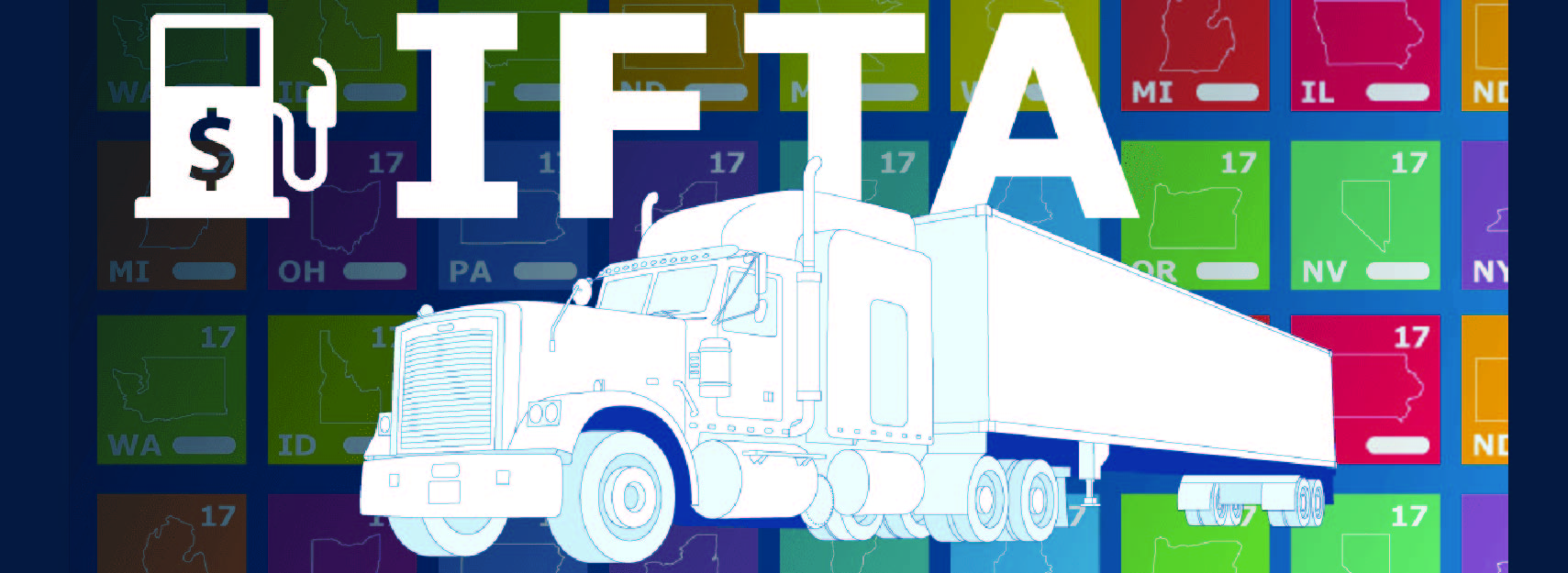Directly or indirectly, it is an agreement that impacts most industries: The International Fuel Tax Agreement (IFTA). Whether you’re a new truck driver, experienced owner-operator, or service company like us, knowing the ins and outs of agreements like the IFTA is critical to staying in business. We live in the age of fuel economy. We look to innovative solutions like fuel cards and advanced commercial motor vehicle accessories to get the most out of our mileage. Fuel taxes make up an important part of the picture.
If we are using less fuel, less taxes go into the system. But before we even got to this point, we faced a complex web of different fuel tax standards governing the supply chain from state-to-state. Prior to the IFTA, truckers had to purchase fuel permits at a state’s point of entry to purchase fuel – whether using cash or fuel card – within that state. It became even more complex for those operating north of the border.
How the IFTA works
The original intent of the IFTA was to unify the process by which permits were granted throughout 48 states and 10 Canadian provinces. The umbrella tax structure allows states to calculate how many miles a vehicle drives in their state, thus allowing for even distribution of funds from state to province, depending on vehicle miles.
There are two states that do not participate in the IFTA; Oregon, which has agreements with participating states so that mileage driven in the state can be tracked accurately, and Hawaii, opting to drop out of the system purely because of its location. If one is operating a commercial motor vehicle in Hawaii, we say congratulations!
The specific underpinnings of the IFTA were developed by a non-profit organization in the 1980s. There were so many questions within the states regarding how taxes were collected and distributed, something had to be done to unify the system.
Much like how a comprehensive fuel card helps a motor carrier increase efficiency, the IFTA was designed to do the same for fuel tax collection and distribution. Fuel taxes are divvied up based on the number of miles a truck driver drives in a certain state. Issuing a single fuel tax license covers the company to cross state lines without having to lose valuable time (in the era of hours of service) to purchase multiple permits.
The program works especially well for owner-operators who are working for a fleet and are responsible for keeping track of their tax liabilities. Rather than relying on clients to handle the heavy accounting or hiring an outside accountant to make sense of it, the IFTA makes it possible for owner-operators to handle liabilities quarterly.
IFTA Confusion
Any problems associated with the IFTA are usually related to the different tax rates in each state. With the tax rate fluctuating wildly from state to state, some wonder how the reports are calculated. Fleets should know that they will be calculated by the quarter and determined by the states themselves. States will require those taxes to be paid quarterly.
If you run through fuel in California and then enter Nevada, you will receive a credit on your charges at the end of the quarter for the fuel you used in Nevada that you originally purchased in California. Trying to figure that out through correlating a pile of permits is about as easy as a back-office accounting team sorting through piles of receipts because their fleet isn’t using a Cardlock fuel card program.
The IFTA has taken the confusion out of calculating state fuel taxes. Now it is time to avoid confusion in your back-office by investing in a fuel card solution. If you’re in Bakersfield, Fresno, Ventura, Santa Clarita and San Luis Obispo California counties, take advantage of our expertise.
